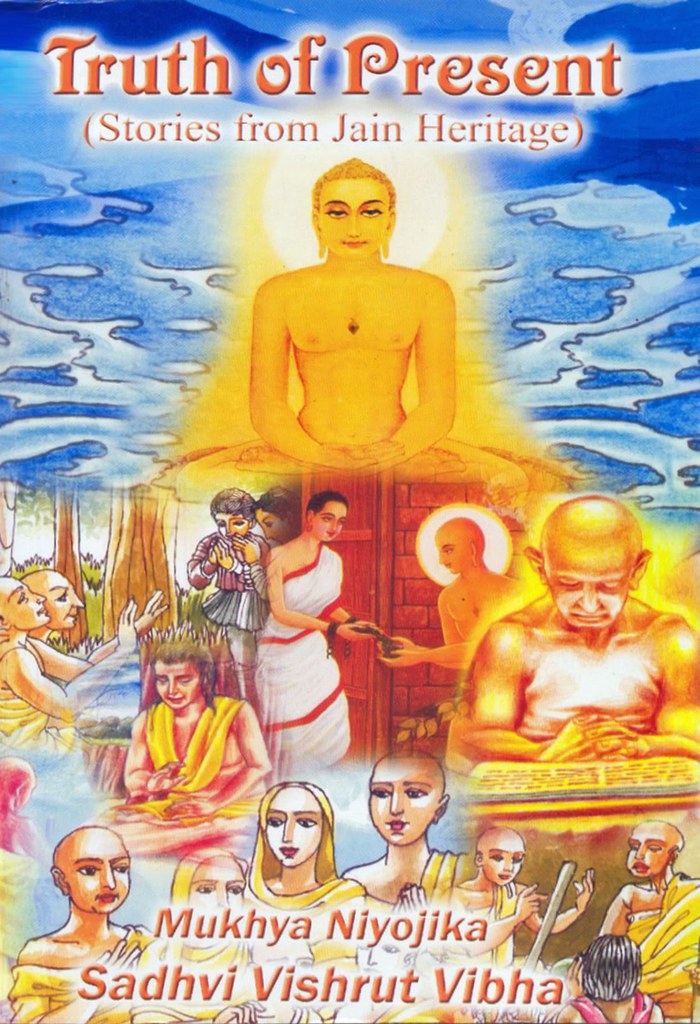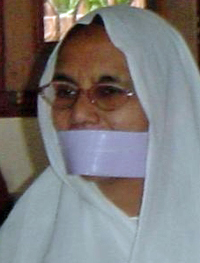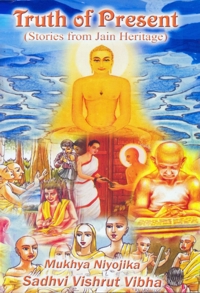
Austerity Overcomes Casteism
Shankar, the king of Mathura, became a monk and while moving from one place to another, he happened to reach Hastinapur. He wanted to go to the town for alms so he asked a passerby the way to the town. There were two roads leading towards the town, one being a short cut but it was too hot to walk on that path. Just for the sake of fun, the passerby indicated the hot path. The monk walked on this path willingly and since he had divine power within him, the way immediately became cool just by the touch of his feet.
The passerby, who was a Brahmin, saw the monk walking on that path without any hesitation. He started following the monk and found that the road had become cool. He realized that this had happened due to the penance of the monk. The Brahmin repented for his folly and ran up to the monk to apologize for his behaviour. The monk then preached the true essence of religion; this created a feeling of detachment in the latter’s mind.
The Brahmin was influenced by the monk’s preaching and was later initiated. He was named Somadeva. Even after initiation the feeling of pride about his cast continued and often he would say, “I am a Brahmin and was born in noble house.” After sometime he died and was sent to heaven. Next, he took birth in a Chandal’s house. In his present birth he was well known as Harikeshabala. One day, while playing with his companions, he started quarrelling and his friends pushed him out of the game. The other children continued playing, but he could only stand and watch them playing. Meanwhile a dangerous serpent came there. People threw stones at it and killed it.
After a few moments, an ‘Alsiya’ was seen at that place. But this time the people were not bothered and did not kill the ‘Alsiya’. Harikesh watched the entire incident from his place. He thought, “People suffer because of their own faults. If I have poison within me like a snake, then it is natural that people will kill me and if I were like an ‘Alsiya’, which is devoid of poison, nobody would torture me.” He pondered over this for a while and finally achieved ‘Jaatismaran’. He remembered his former birth where he used to be proud of his cast. This incident developed a feeling of detachment in him and he accepted the path of initiation.
Now Muni Harikesh began observing the vows of a monk and was engrossed in meditation and penance. Due to his penance many “Yaksha” were at his service. Harikesh used to meditate in a “Yaksha” temple. Once while he was absorbed in meditation, princess Bhadra, the daughter of king Kanishka, came to varansi to worship the “Yaksha”. There, she happened to look at the monk in the deep meditation, but seeing his dirty clothes, she became furious and spat on the monk.
The “Yaksha” saw this and thought, “This princess has insulted a monk and so she should be punished.” The Yaksha entered into the body of the princess. She became made and started blabbering. The servants took her back to the palace. She was given a lot of treatment but all in vain. Finally, the Yaksha said, “This princess has disparaged a monk. Therefore, I shall come out of her body, only if she accepts to marry that monk.” The king accepted this condition. The king, along with his daughter, went to the Yaksha temple. He bowed his lead and requested the monk to accept his daughter. When the monk finished his meditation, he said, “I am a monk. A woman is an obstacle in the path of emancipation. I cannot even touch her.” Saying so, he started meditating again.
Leaving his daughter beside the monk, the king came back to his palace. The Yaksha took the form of the monk and married the princess. They lived together for the whole night, and in the morning, the Yaksha went away. The monk explained the reality to the princess. She returned to the palace and told the king, how the Yaksha had deceived her. A minister sitting next to the king suggested, “Oh Lord! She is the wife of a monk. The monk has abandoned her, so you should give her to a Brahmin.” Hence the king entrusted the princess to his minister, who was a Brahmin. She lived happily with him. Some time later the minister accomplished a ‘Yagya’. Scholars and Brahmins were invited from far away places. A great variety of foodstuff was prepared for the guests.
At that time Muni Harikesh had been performing a month-long penance. On the day of his ‘paarana’, he reached the place where the Yagya was being performed. The Brahmin disparaged him and said, “Even if our food goes waste, we would not give it you.” Bhadra was standing next to the Brahmin. She saw this and said, “He is a great monk doing a lot of penance and meditation. My father wanted to give my hand to him but he did not accept me. If you really wish life and wealth, do provide him with shelter. If he gets angry he will burn the whole world.” Listening to these words the Brahmin got scared and said, “O Lord! We are sorry for insulting you. We beg for your forgiveness.” Then they requested him to accept their food for his ‘paarana’. Harikesh took their food and ended his month long fast. On this great occasion, the gods poured scented water and flowers on the earth and declared his fast a wonderful one.
It is penance that is great and not one’s caste. Thus, one should not be proud of one’s noble caste, for caste is only secondary. It is one’s own karma, which should be given primary importance. It is our own ‘karma’, which ultimately decides our fate.
 Sadhvi Vishrut Vibha
Sadhvi Vishrut Vibha
